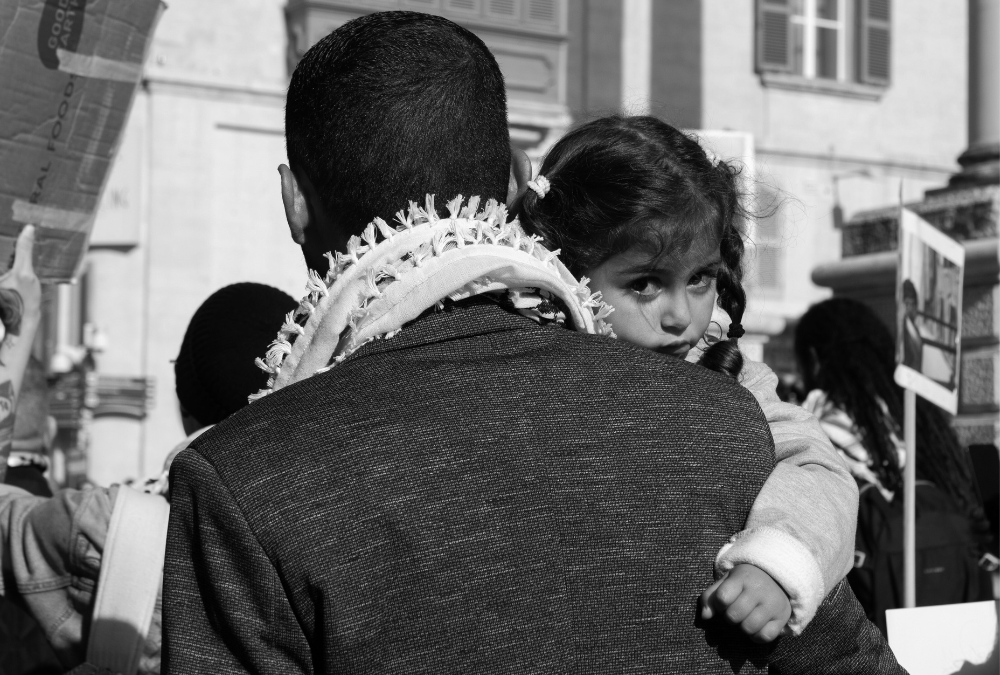On Friday evening, I bore witness to the pain of the countless women we’ve lost through the women who are still around to carry the torch.
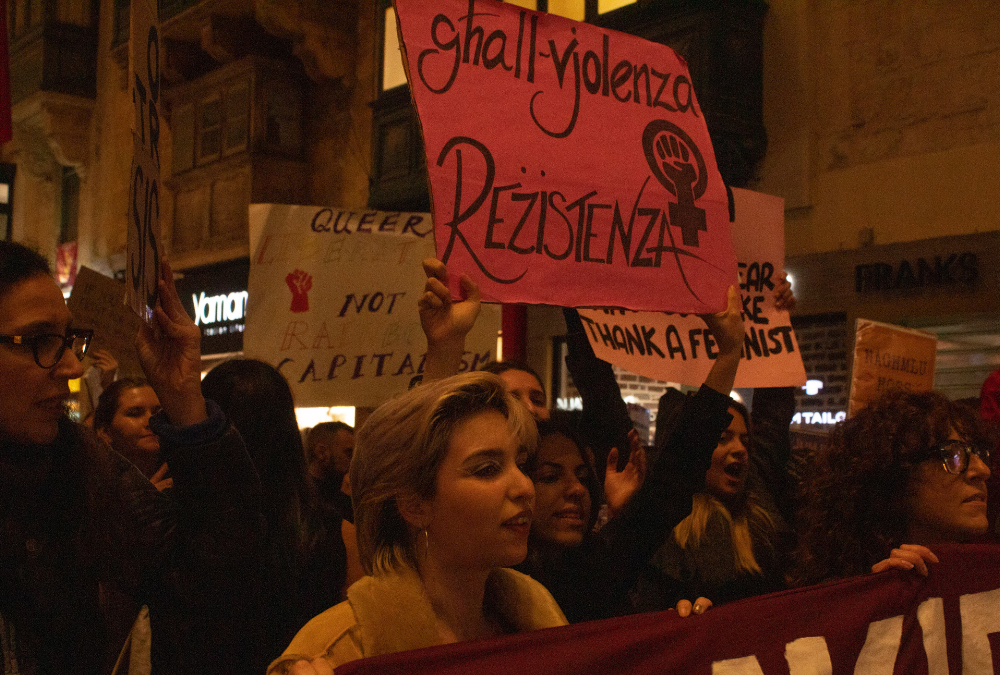
Protestors attending the annual march for International Women’s Day in Valletta. Photo: Julian Delia
As the furious marching climaxed in front of Parliament and the protest organisers announced that the event would end with two performance acts, I shifted my exhausted body towards a viewpoint where I’d be able to get a better photo angle.
I did not expect to end up sitting on the floor transfixed by what I was witnessing.

A photo of the moment in which the march finished with a performative dance that eventually roped in the rest of the crowd. Photo: Julian Delia
On Saturday morning, I was in Xemxija to take photographs of archaeologically and ecologically significant garigue land that sits squarely in the middle of a densely built up residential zone and is set to be converted into yet another soulless dwelling that maximises profitability and minimises just about anything else.
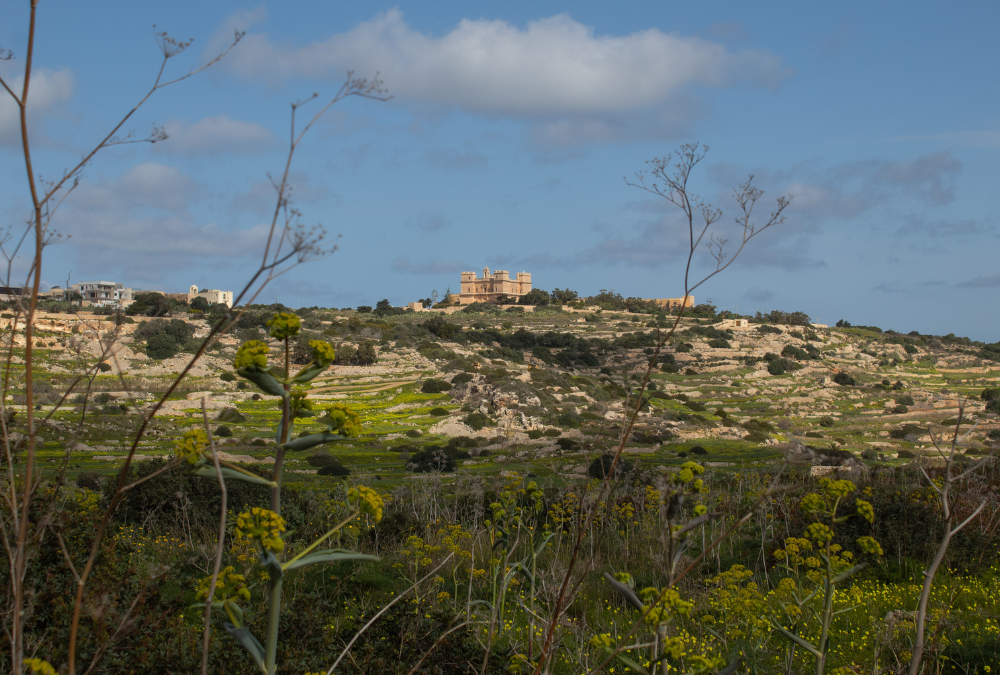
A photo taken from the site of a proposed 13-storey tower in Xemxija which is set to take up the last green space in a densely built up neighbourhood. Photo: Julian Delia
In spite of the onslaught of ceaseless development, the systemic corruption embedded within our planning system, the continuous exchange of favours between politicians and major developers, and the heartache and loss of motivation that inevitably come about as a result, people still show up in numbers for a press conference on a Saturday morning, bringing fistfuls of hope and anger in equal measure.
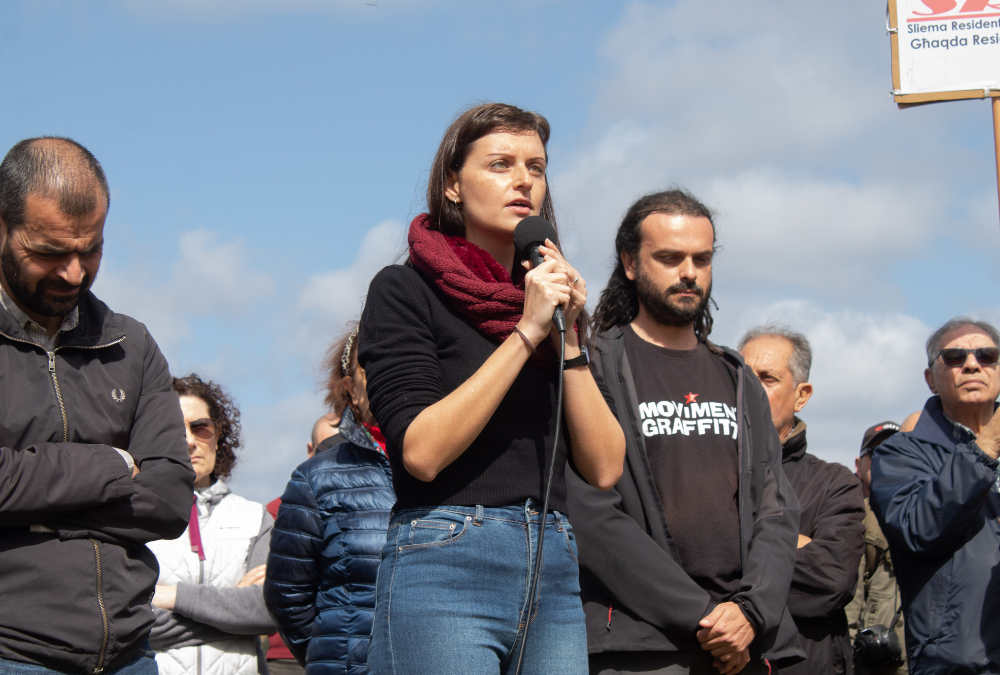
Moviment Graffitti activist Karen Tanti delivering a speech during Saturday morning’s press conference in Xemxija. Photo: Julian Delia
The flowers and the butterflies do not care for our petty human squabbles. They blossom and thrive in spite of the planning application that is about to guillotine them.
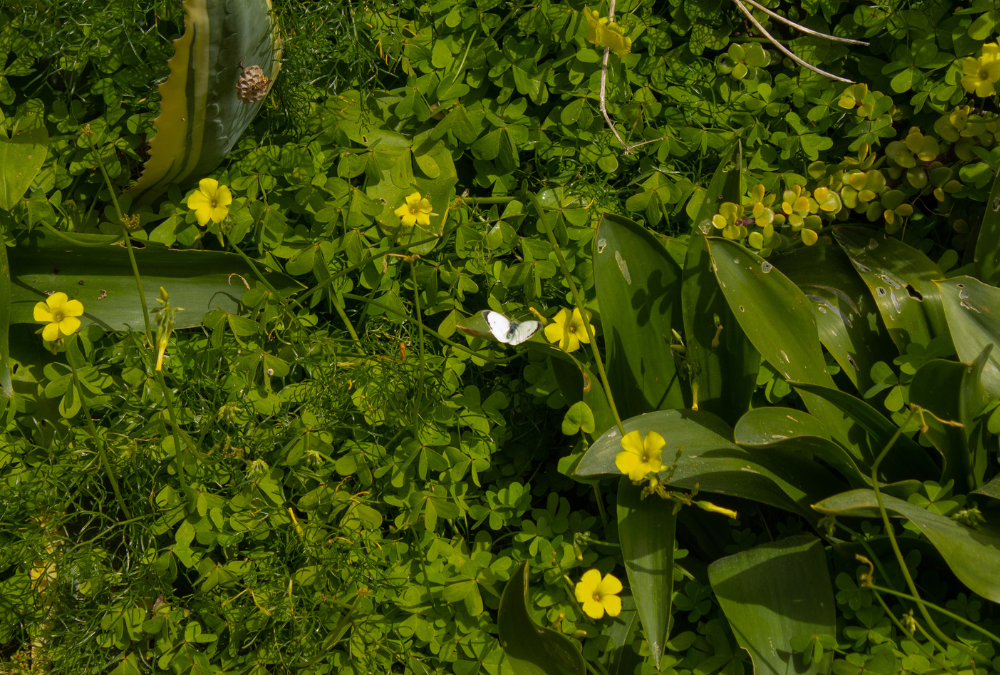
A photo of a butterfly in Xemxija. Photo: Julian Delia
Saturday afternoon – back in Valletta for another demonstration. This time, it’s another protest held in solidarity with Palestine. This was the fourth time such a protest was organised in Malta since Israel escalated its genocidal campaign against Palestinians in the aftermath of Hamas’ retaliatory act of aggression on 7 October, 2023.
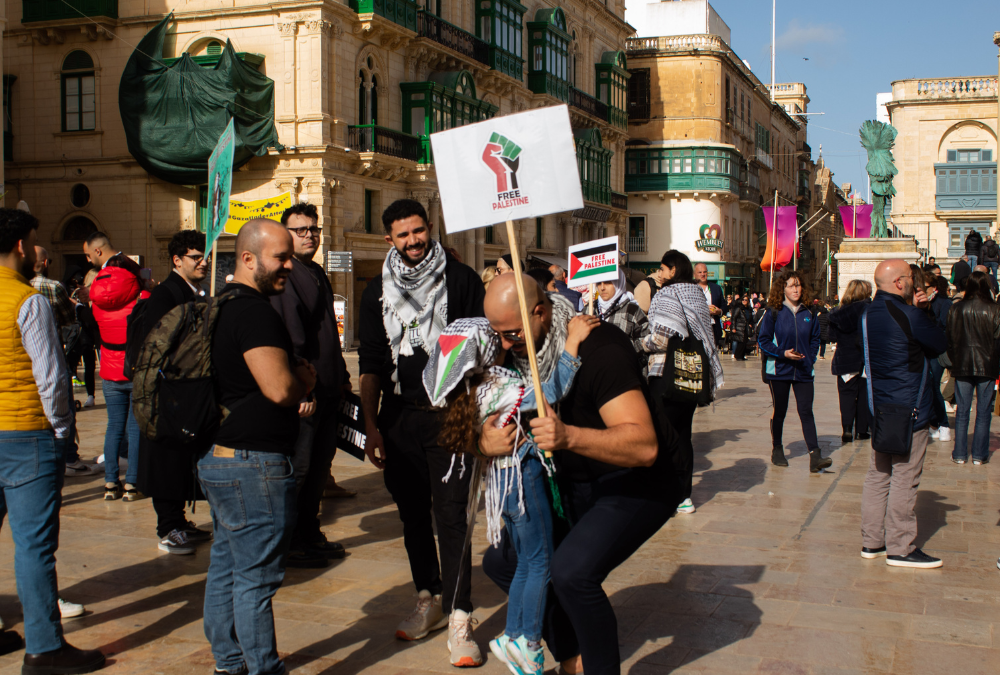
Two protesters give each other a warm welcome a few minutes before a march in solidarity with Palestine was held in Valletta. Photo: Julian Delia
As we marched yet again to the sound of the anguished cries of a population whose history will be forever stained by the world’s decision to betray them, I heard grieving souls speak of dead families, dead neighbours, and dead neighbourhoods.
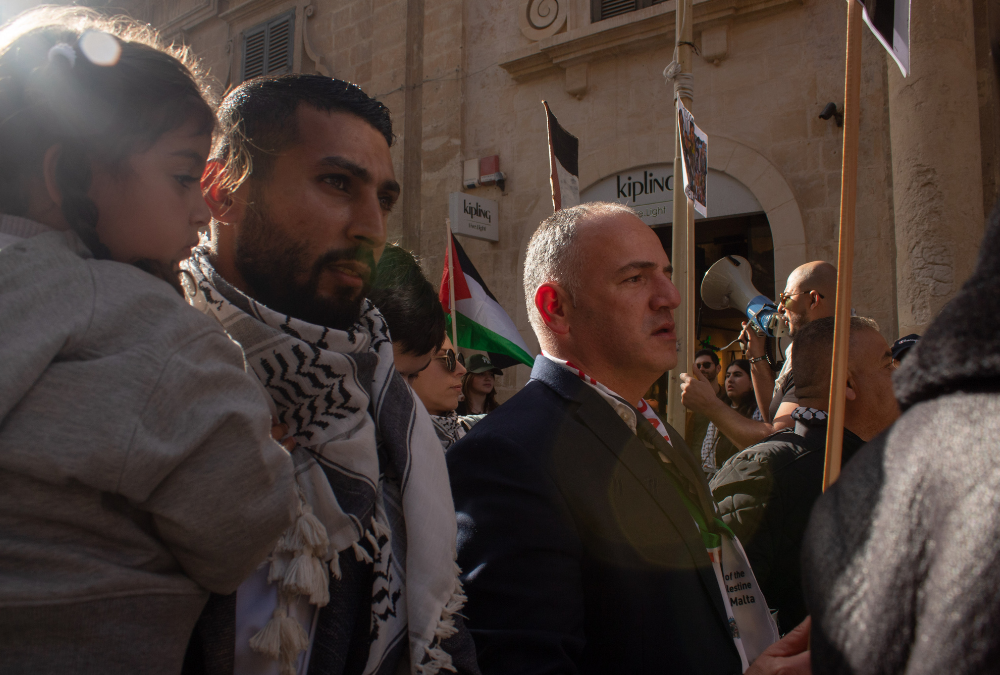
From left to right: Selah Hajras and her father, Ashraf (also visible in this article’s featured photo), and Palestinian ambassador Fadi Hanania. Photo: Julian Delia
As I sit at my desk typing this article in the very early hours of a Sunday morning, I find myself wondering how we came about to our current predicament.
How did we accept the normalisation of suffering to the point in which a standard Friday to Saturday news cycle highlights three distinctly problematic scenarios – the oppression of women across the globe, the ongoing destruction of our environment, and the slaughter of Palestinians – all of which seem to be relatively easy to dismiss for the majority of the population?
We are a nation that gleefully turns on the television to lap up the latest bit of reality dross but turns away at the sight of the downtrodden. The minute you disconnect us is the minute we remember just how much we’ll go out scrambling looking for each other in times of uncertainty. The minute we are plugged back in is the minute we forget about each other all over again.
How did we get to the point in which we are so used to being dismissed ourselves that it has become far easier to normalise the suffering of others (as long as it remains out of sight and out of mind) than it is to do anything tangible and real about it?
How did we become alienated enough for us to be able to ignore the very real survival struggles of our fellow persons but simultaneously retain the ability to quickly shoot down any and all suggestions of radical action against authority?
Because let’s face it: given that so many of us are constantly occupied with barely keeping afloat ourselves, how many of us find time to pause, think, and try to assess where exactly this whole shitshow is going? How many of us still have the capacity to dream of a better future and take action to bring it closer to home?
I am asking these questions because no one else seems to be doing it around here anymore. Nothing intrigues me more than an enigma whose mysteries were so great they were lost over time, and this is one such conundrum: does one take action to remedy the situation while effectively sacrificing what little quality of life they might have left, or does one simply shuffle along to preserve the crumbs of a life that one can build in this context?
I tend to want to conclude a commentary piece that begins with an open-ended question with an attempt at answering it. But in this case, I am not the one who can provide those answers to the reader, because the nature of these questions is inherently personal.
So instead, I’ll close with a note – or rather, another question for you to ponder. The answer to this one last question could be arguably described as the crux of it all: do you want an idiocracy that barely tolerates your existence or do you want a democracy that ameliorates it?
Because if your preferred option is the latter, then you will have to commit to it. For a real democracy to survive the whims of tyrants and despots, the only constant is resistance.
